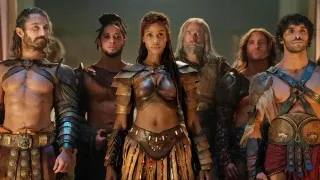March 28, 2017
Our Future: There's a Revolution in Pop Music, and Only the Kids Care
Kyle Mangione-Smith READ TIME: 5 MIN.
As I was half paying attention to my classmates' work during one of my film production class' project evaluations, the intro chords to Frank Ocean's Nights caught my ear -- one of my favorite tracks from recent memory. My classmates' video was simple; following your average socially active, popular college kid living in Boston through what one would assume was a day off. Rolling joints in the park, late night pizza runs, sitting around dorms lit by Christmas lights, and generally not doing much other than passing time with friends.
Given the content of the video, the music selection made perfect sense. Yet the fact that an album as idiosyncratic as Frank Ocean's "Blonde" is now associated with mainstream youth culture is perplexing to me. I've heard "Nikes" at parties, the muffled guitar in "Ivy" through the walls as I walk down the hall of my dorm, students humming "Pink and White" to themselves in class.
"Blonde" could accurately be described as an art pop album, featuring segments that are closer to the ambient works of Brian Eno than any RnB artist, lo-fi experimentation and multiple songs that have no rhythm section at all. Beyond this, it's deeply personal in a way few pop stars have managed. And yet that's undeniably what Frank Ocean is, a pop star. His audience is not haughty music nerds, but your average American 20-something.
This is far from the only instance of this phenomenon in recent memory. Kanye West has been venturing into the realm of experimental hip-hop for two albums now, with varying degrees of success, and his fan base has stuck with him. Beyonce and Kendrick Lamar have debatably brought the sanctity of the album format back into the mainstream, showing a kind of cohesively both in message and sound across their latest releases that one could hardly find in pop music a decade ago.
This is just the music, too. An entirely new level of production and care is being placed in regards to music videos, merchandise, concerts, marketing, even the way in which music is being distributed. The fact that in the same year both Frank Ocean and Beyonce released visual albums, a concept that hadn't been relevant to mainstream music in decades, should on its own be seen as revolutionary. Within the world of high fashion, figures like Travis Scott and A$AP Rocky have undeniably been a huge factor in shaping the direction of the industry. Pop stars no longer function only as musicians, but as artists, and individuals beyond that.
What's interesting about all this is that hardly anyone within the music industry seems to care. Frank Ocean didn't submit "Blonde" to the Grammys for consideration, and later went on to talk about the worthlessness of a TV award in defining his personal success. Following his announcement, Kanye West, Justin Bieber, and Drake, one of the artists nominated for album of the year, all decided to skip the event, stating that they didn't believe the show accurately represented young, black artists. At the end of the night the shows highest award went to Adele's "25," an album that will most likely be forgotten in a decades time. Beyonce's "Lemonade," an album that regardless of ones opinion on it pushed modern pop music into a new level of artistry, was not given the title.
The radio, being the main avenue through which young people discovered new music for decades, is hardly better. Aside from a handful of singles, most of these artists hardly get any airtime, and when they do it'll certainly only be their material that's deemed "marketable." Instead of this, you hear music from The Chainsmokers, or Ed Sheeran, or Bruno Mars, or whatever other Grammy-recognized artist out there right now that's content repeating the same tired format. Yet this idea that pop music that dares to be adventurous isn't "marketable" is ludicrous. I wouldn't find it commonplace to hear "Nights" featured in one of my classmate's films if that wasn't the case.
Yet the question isn't whether or not these institutions will be able to catch up with the way in which pop music has evolved, but whether they'll even be able to stay relevant in the face of it. Another feature that's become definitive of modern pop music is the changed way in which artists are capable of recording and releasing their music. The Internet has allowed for album releases free of a marketing campaign, free from the need for physical distribution, free from the need of a label, free from anything separating the artist from their audience. The institutions that historically have controlled pop music are no longer necessary. If they're not needed for the success of these artists and no longer represent them, then how do they expect to stay relevant?






